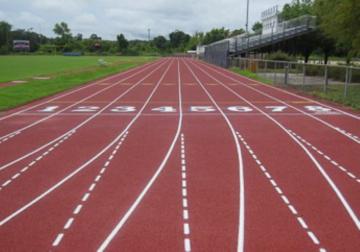
In Missouri, most solid waste is disposed of in a permitted sanitary, demolition or special waste landfill. However, certain waste materials can be used for an alternative use that will serve a beneficial purpose, usually as a fill material. The department may allow some wastes to be reused for specific, alternative purposes without having to meet some requirements of the Missouri Solid Waste Management Law and regulations. A beneficial use exemption allows material that would otherwise be required to be placed in a permitted landfill to be placed in a non-landfill location.
Missouri Code of State Regulations 10 CSR 80-2.020(9)(B), allows the department to grant an exemption from the solid waste disposal area permitting requirements for the beneficial use of solid waste, as long as beneficial use or reclamation can be demonstrated and the beneficial use does not create pollution, a public nuisance or a health hazard. Although the department has granted some broad, general beneficial use exemptions, these requests are usually evaluated on a case-by-case basis for a specific site and type of activity. The department simply cannot anticipate the beneficial use of every waste stream and the conditions at every site.
The beneficial use determination process is the same for all projects, although the level of detail required will vary somewhat from one request to another, depending on the circumstances.
- A letter must be sent to the department's Waste Management Program, explaining the proposed beneficial use project. The letter should include all information the department will need to determine if the project meets all the regulatory criteria. The following information should be included with the letter:
- A detailed description of the project, including the project's location, an estimate of the amount of waste needed to complete the project and the amount of time required to complete the project
- Documentation specifying the source of the waste
- A complete characterization of the material to be used, including all laboratory analysis results
- A complete description of all precautions that will be taken to assure that no harm to the environmental will occur as a result of the beneficial use of the material
- The department's Waste Management Program will review the information and reply, in writing, stating either the project is approved, not approved or more information is required. If the proposal cannot be approved, the department will provide an explanation why.
If you have any questions about using waste materials for a beneficial use project, contact the department’s Waste Management Program. To learn about other activities that may be exempt from permitting requirements, visit Activities Potentially Exempt from Solid Waste Regulations.
Additional Resources:
- Testing Requirements for the Beneficial Use of Coal Combustion Byproducts
- Guidance for End Users for the, Beneficial Use of Cement Kiln Dust
- Statement of Beneficial Use Closure
- Beneficial Use of Petroleum Contaminated Soil - PUB2177
- Application for Scrap Tire Beneficial Use Approval MO 780-2042
- Scrap Tire Surface Material Grants
- Missouri Market Development Program (EIERA)
